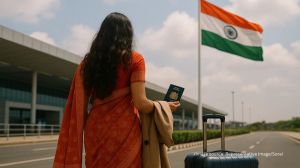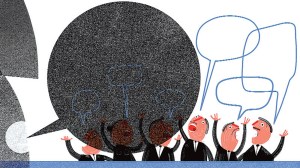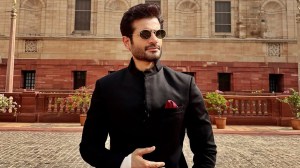Jethmalani seeks review of Constitution
NEW DELHI, DECEMBER 20: Union Law Minister Ram Jethmalani on Sunday set the ball rolling on a debate on the working of the Constitution by...

NEW DELHI, DECEMBER 20: Union Law Minister Ram Jethmalani on Sunday set the ball rolling on a debate on the working of the Constitution by suggesting that the right to property should be restored as a fundamental right.
Speaking at the inauguration ceremony of a three-day seminar to review the Constitution’s working organised by the Bar Association of India Jethmalani described his suggestion as “pro-poor” as poorer sections of society were also being hit by the property acquisition laws of the Government.
The right to property was enshrined as a fundamental right in the Constitution till its deletion through a constitutional amendment in the 1970s to enable the Government to go ahead with its land acquisition programme to benefit the poorer sections of society.
Among other suggestions made by the Law Minister on the Constitution was one which, he said, should define clearly that only a person of “superior citizenship”, which is by “birth and blood”, should be allowed to hold high public offices. He termed as “inferior” citizenship acquired by registration or marriage.
According to Jethmalani, other areas which needed to be discussed and debated upon included federalism, judicial independence, Article 356, education and corruption.
The Law Minister felt that the right to education up to 14 years, which is at present part of the directive principles of state policy, should also be made a fundamental right, adding that the shift would make it a right enforceable in the court of law.
He described the recently published code of ethics for the judges as “inadequate and insufficient” and called upon the judges to evolve a more effective and precise code of conduct for themselves.
Attorney General Soli Sorabjee was of the view that while by and large the Constitution had stood the test of time, there were certain things, such as frequent dissolution of the Lok Sabha, misuse of Article 356, imposition of Emergency etc., which could not have been imagined by the Constitution-makers. These need to be discussed afresh, he suggested, adding the right to privacy and right to education should be made fundamental rights.
He also dispelled any apprehensions about the Government’s proposal to review the Constitution, saying the committee’s suggestions would not be automatic amendments but would require the acceptance of Parliament.
Doing away with multiple taxation and abolition of Income Tax and Sales Tax in favour of a single value-added tax was a suggestion mooted by Solicitor General of India Harish Salve. Former Union Law Minister Shanti Bhushan was of the view that direct elections to the office of Prime Minister and Chief Minister was the most effective answer to the current problems of political instability and corruption.
Bar Association of India president and Rajya Sabha MP F S Nariman was of the opinion that the Constitution’s provisions worked well for the first 20 years of our independence but the later slump in political morality made it weak. Yet, he felt, the Constitution fared better than that of our neighbours, one of which had 17 constitutions and 23 prime ministers.
CPI MP J Chittaranjan stressed the need for overhauling Article 356 and also re-examining the Centre-state relations in the distribution of financial powers.
The participants included eminent jurists, lawyers, politicians, academicians and representatives of NGOs.



- 01
- 02
- 03
- 04
- 05



























